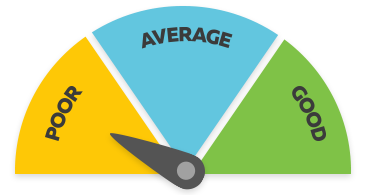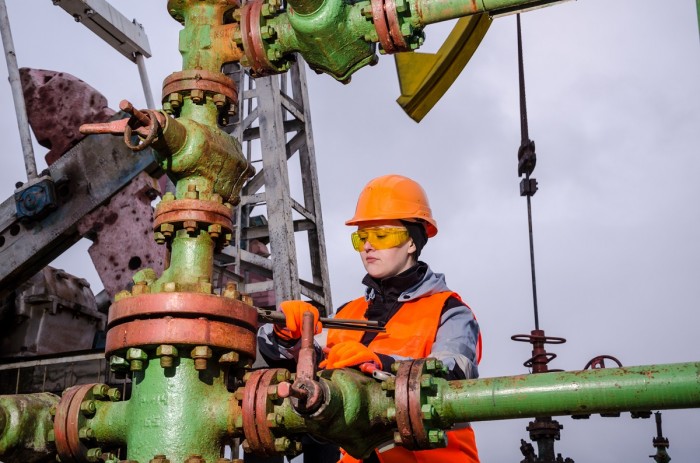Driller
Kaipoka
Alternative titles for this job
Drillers assemble, position, and operate drilling rigs and related equipment to extract ores, liquids, and gases from the earth.
Pay
New drillers usually earn
$60K-$70K per year
Experienced drillers usually earn
$70K-$150K per year
Source: MITO and Minex, 2018.
Job opportunities
Pay
Pay for drillers varies depending on experience.
- New drillers usually earn between $60,000 and $70,000 a year.
- Experienced drillers can earn between $70,000 and $150,000.
Sources: MITO, 2018; and Minex National Health and Safety Council, 2018.
(This information is a guide only. Find out more about the sources of our pay information)
What you will do
Drillers may do some or all of the following:
- dismantle, move, and assemble drilling rigs and machinery
- oversee assembly of the drilling tools
- operate drilling and hoisting equipment
- weld machinery
- operate pumps to expel air, water, and mud from holes being drilled
- take samples of soil, ore, liquids, and gases
- maintain, repair, oil and clean machinery
- keep written records of drill depths
- ensure the plant and its equipment are operating safely.
Skills and knowledge
Drillers needs to have:
- knowledge of well pressure systems and drilling fluids
- understanding of drilling methods and terms
- mechanical skills
- skill using and caring for equipment
- knowledge of emergency procedures and health and safety regulations.
Working conditions
Drillers:
- often work long hours and usually do shift work, including nights, weekends and being on call
- work in conditions that may be hazardous, noisy and dirty
- work in cramped or confined conditions in underground mines, or varied weather conditions in opencast mines and offshore gas and oil rigs
- may have to travel to other regions to work on oil and gas rigs out at sea.
Entry requirements
To become a driller you need to:
- be at least 16 years old to operate a drill
- be at least 18 years old to work on an oil or gas drilling site
- have a full driver's licence
- pass drug and alcohol tests and sometimes police checks.
A heavy vehicle licence and first aid certificate are useful.
Some employers may expect you to complete a relevant qualification such as a New Zealand Certificate in Non-Hydrocarbon Drilling (Level 3 and 4) while working.
Secondary education
No specific secondary education is required for this job, but maths, construction and mechanical technologies, geography and physical education at NCEA Level 1 are useful.
Personal requirements
Drillers need to be:
- safety-conscious and able to remain calm in emergencies
- able to concentrate for long periods
- adaptable
- observant, with an eye for detail
- able to follow instructions.
Useful experience
Useful experience for drillers includes:
- operating machinery
- driving heavy vehicles
- construction industry work
- electrical work
- engineering or general labouring.
Physical requirements
Drillers need to be fit, healthy and strong, with no back problems, because they must be able to lift or move large pieces of equipment. They need to be able to work at heights, underground and in cramped conditions.
They should also have good hand-eye co-ordination and good eyesight (with or without corrective lenses).
Find out more about training
- Energy Skills Association of New Zealand
- (06) 757 5995 - sheree.long@psanz.org.nz - www.energyskills.co.nz
- MITO
- 0800 882 121 - www.mito.org.nz
What are the chances of getting a job?
Low demand for oil and gas drillers
Opportunities for oil and gas drillers (hydrocarbon drillers) are decreasing. This is due to:
- low global prices for oil and gas
- limits on opening new oil and gas fields in New Zealand.
Opportunities for drillers in construction, coal and goldmines may increase
Opportunities for drillers in the coal industry have been poor due to coal mine closures. However, demand for drillers who work in construction, coal and goldmines is predicted to increase. This is due to:
- new mines and quarries opening because of expected price rises for coal and gold
- drillers leaving for higher paid work in Australia
- drillers leaving the job due to its high physical demands
- a continuing construction boom, which means drillers are needed to work in quarries and on building sites
- an ageing workforce, which means many drillers will retire soon.
According to the Census, 873 drillers and 129 driller assistants worked in New Zealand in 2018.
Types of employers varied
A wide range of businesses employ drillers, including:
- oil, gas, and geothermal exploration companies
- geotechnical agencies, to monitor earth movements
- construction companies
- firms that drill water bores or wells
- mining and quarrying companies.
Sources
- Collins, B, 'Everyone Wants to See Any Job Opportunity', 23 November 2017, (www.radionz.co.nz).
- Long, S, general manager, Energy Skills New Zealand, Careers Directorate – Tertiary Education Commission interview, April 2018.
- McDonald, L, 'Industries Fear Effects of New Government's Environmental Stance', 9 November 2017, (www.stuff.co.nz).
- MITO, 'Mining 2017', 2017, (www.mito.org.nz).
- MITO, 'Quarrying 2017', 2017, (www.mito.org.nz).
- Parton, R, chief executive officer, The Aggregate and Quarry Association of New Zealand, Careers Directorate – Tertiary Education Commission interview, March 2018.
- Radio New Zealand, 'Oil, Gas Exploration Move a "Kick in the Guts" for Taranaki – Mayor', 12 April 2018, (www.radionz.co.nz).
- Scanlon, L, 'Stockton Mine Workers to Keep Jobs', 28 June 2017, (www.odt.co.nz).
- Scott, W, chief executive officer, Minex National Health and Safety Council, Careers Directorate – Tertiary Education Commission interview, March 2018.
- Stats NZ, '2018 Census Data', 2019.
- Stats NZ, 'Primary Sector Weakens', 21 September 2017, (www.stats.govt.nz).
- Stuff, 'New Zealand's Coal Exports are on the Decline', 2 October 2017, (www.stuff.co.nz).
- World Bank, 'Commodity Prices Likely to Rise Further in 2018: World Bank', 26 October 2017, (www.worldbank.org).
(This information is a guide only. Find out more about the sources of our job opportunities information)
Progression and specialisations
Drillers may progress to set up their own drilling business, or move into management roles, such as toolpusher or rig superintendent.
With further training, drillers may progress to become drilling engineers.
Drillers can specialise in a number of roles, including:
- Assistant Driller
- Assistant drillers communicate instructions from the main driller to other drill workers to ensure the correct operation of the drill.
- Bore Driller
- Bore drillers drill for water.
- Derrickman
- Derrickmen control the top part of a drill from the derrick (high tower) on an oil or gas rig.
- Hydrocarbon Driller
- Hydrocarbon drillers drill for oil or gas both on and offshore.
- Non-Hydrocarbon Driller
- Non-hydrocarbon drillers drill holes in the ground for reasons other than discovering oil and gas. They might drill into the ground to locate water for a well, or into large rocks so explosives can be used to break them up, or at a construction site to help prepare foundations.
Last updated 7 November 2023

